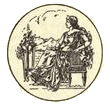| School | Troops | Resources |
British Association for the Advancement of Science (BAAS)

[Note: Part of the HET Website. This page is not related to or endorsed by the British Association or any other organization. See the official BAAS. website]
The British Association for the Advancement of Science (BAAS) was the brainchild of the Edinburgh scientist David Brewster and the clergyman Vernon Harcourt, with the backing of William Whewell, Charles Babbage, John Hershel and others. Disappointed by what they perceived to be the narrow elitism of the Royal Society and the general decline of science in the British Isles, Brewster & co. looked around for a solution to promote science not only among professionals, but also among amateur enthusiasts and the general public. They were inspired in particular by the continental associations, notably the Association of Physicians and Naturalists set up in Munich in 1822 and the German Congress of Scientists which had met in Hamburg in 1830.
The BAAS was founded with a threefold aim: first, to promote and fund scientific research efforts; secondly, to engender communication between scientists throughout Britain and disseminate information of scientific results; thirdly, to publicize and promote the cause of science among the general public. The first meeting was held at York in September 27, 1831 and its first president was Charles William Wentworth, Lord Fitzwilliam.
In 1832, William Whewell invited Adolphe Quetelet to speak at the Cambridge conference of the BAAS. Quetelet's presentation on statistics and social science and electrified the audience. In the aftermath, Whewell, Babbage, Richard Jones and Robert Malthus, the dean of English economics, persuaded the BAAS president Adam Sedgwick to found "Section F", focused on statistics, which would include political economy. Arguably, Section F of the BAAS has been regarded as the first professional association of economists.
The founding group of Whewell, Jones, Babbage, Malthus & co. had originally envisaged Section F to serve as an empiricist counterweight to the influence of the theoretical Ricardians and their Political Economy Club. Section F was labeled only "Statistics" in 1835, and only changed to "Economic Science and Statistics" in 1856, with the "economic science" as a catch-all term to capture the empirical and policy-oriented papers on public administration (sanitation, strikes, etc.) that were usually presented at its meetings, rather than economic theory proper (which were rarer).
The status of Section F reached a nadir in 1877, when it was formally proposed by, among others, Francis Galton, that economics be dropped from Section F of the BAAS on account of its methods being too "unscientific". Or, as Lord Bramwell would summarize the alarming controversy a decade later, its opponents suggested "not that political economy was dead, but that it had never lived - that there never was such a science." (1888: p. 704).
The reliance of economists on Section F of the BAAS as their only professional organization was diminished with the foundation of the British Economic Association (since renamed the Royal Economic Society) in 1890.
Sections of the BAAS c. 1850
A - Mathematics and Physics
B - Chemistry and Mineralogy
C - Geology and Physical Geography
D - Zoology and Botany (& Ethnology)
E - Physiology
F - Statistics (& Political Economy)
G - Mechanical Science
Sections of the BAAS (c.1900)
Section A - Mathematical and physical science
Section B - Chemistry
Section C - Geology
Section D - Zoology
Section E - Geography
Section F - Economic science and statistics
Section G - Engineering
Section H - Anthropology
Section I - Physiology
Section K - Botany
Section L - Educational science
|
|
HET
|
|
Resources on the BAAS
|
All rights reserved, Gonšalo L. Fonseca
